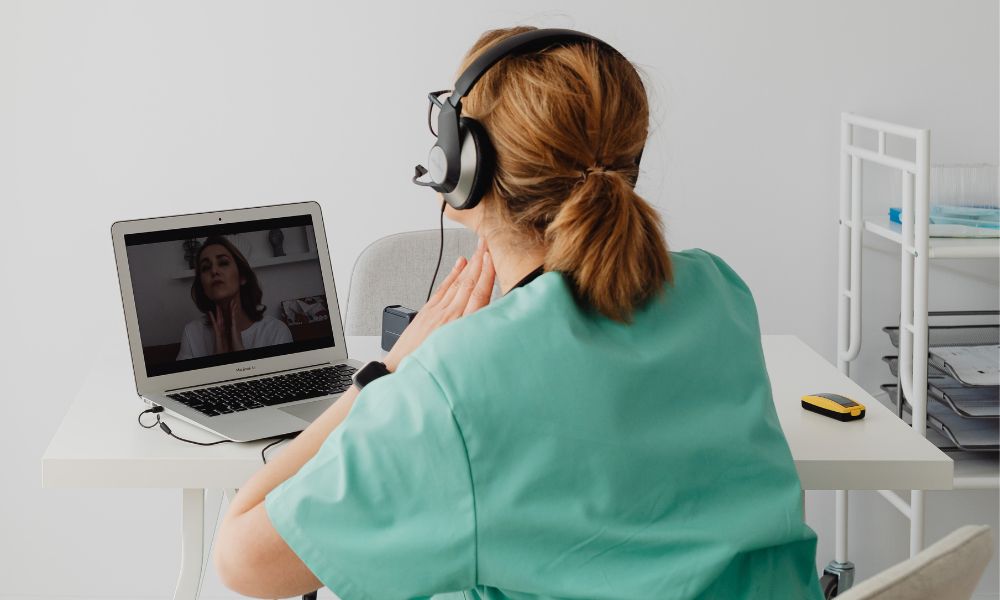
The healthcare industry has changed dramatically with technological advances shaping how doctors deliver patient care. Digital solutions now allow physicians to conduct consultations, diagnose conditions, and manage treatment plans without physical meetings. A major advancement has been made in healthcare accessibility and efficiency.
Evolution of telehealth – Past to present
Telehealth began simply with phone consultations between doctors and patients. Now, it encompasses video appointments, remote monitoring devices, and digital record systems. This growth accelerated during global health emergencies when in-person visits became challenging. Doctors quickly adapted to digital platforms to maintain patient care while minimizing exposure risks.
Digital tools for remote patient care
Doctors practising online rely on various technologies. High-quality video conferencing enables face-to-face interactions where doctors can observe symptoms visually. Digital stethoscopes and blood pressure monitors transmit data directly to physicians during consultations. Electronic health records give doctors instant access to patient histories, allowing for informed decisions regardless of physical distance.
Security and privacy measures
Patient data protection remains crucial in online healthcare. Advanced encryption safeguards sensitive information during transmission between patients and doctors. Two-factor authentication adds another protection layer, while HIPAA-compliant platforms ensure all interactions maintain strict privacy standards. These measures build trust in digital healthcare systems.
Medical certificates in virtual consultations
The ability to issue documentation remains essential for healthcare practitioners. Many patients need medical certificate online documentation for work absences, insurance claims, or prescription refills. Today’s technology allows doctors to create, digitally sign, and securely transmit these documents within minutes. This efficiency benefits healthcare providers and patients who require quick documentation for various purposes.
With the advancement of technological progress, medical certificate online services are expected to become more efficient and accessible. Artificial intelligence may help doctors draft standardized certificates while focusing on personalized patient care. Block chain technology could further secure document authenticity. As remote monitoring devices become more sophisticated, they will enable more comprehensive examinations during virtual visits.
Impact on healthcare systems

Virtual healthcare relieves pressure on physical facilities. Emergency rooms and urgent care centres can focus on critical cases while less severe concerns receive attention through telehealth. This redistribution of resources improves overall healthcare efficiency. Staff shortages in certain regions become less problematic when online doctors can serve patients across vast geographical areas.
Solutions in digital healthcare delivery
While technology enables remarkable advances, challenges exist. Not all patients have equal access to required technology or internet connections. Some medical conditions still necessitate physical examinations. Hybrid models have been developed to address these issues, and patients might use local clinics equipped with technology that connects them to distant specialists. Community programs increasingly provide technology access points for telehealth services.
Training requirements for medical professionals
Healthcare education increasingly includes specific training for virtual care delivery. Doctors learn how to conduct thorough examinations through video, recognize when in-person assessment becomes necessary, and effectively communicate in digital environments. These skills ensure quality care regardless of delivery method.
Technology continues transforming healthcare delivery, enabling doctors to provide efficient, accessible care through digital platforms. As these systems evolve, patients and healthcare providers will discover new benefits while maintaining the essential human connection at the heart of medicine.







